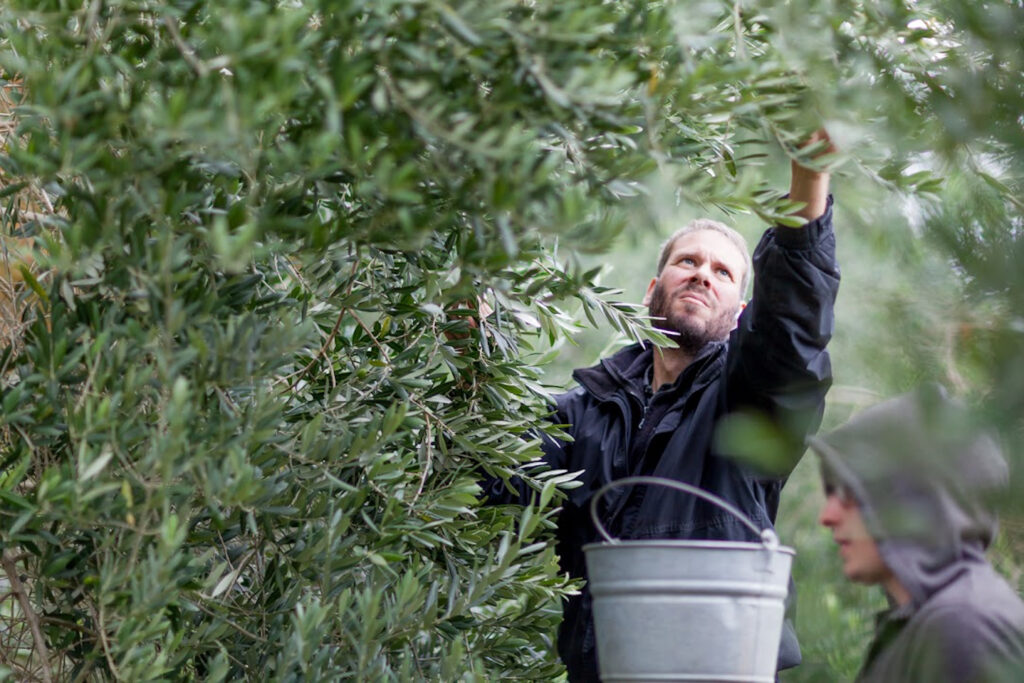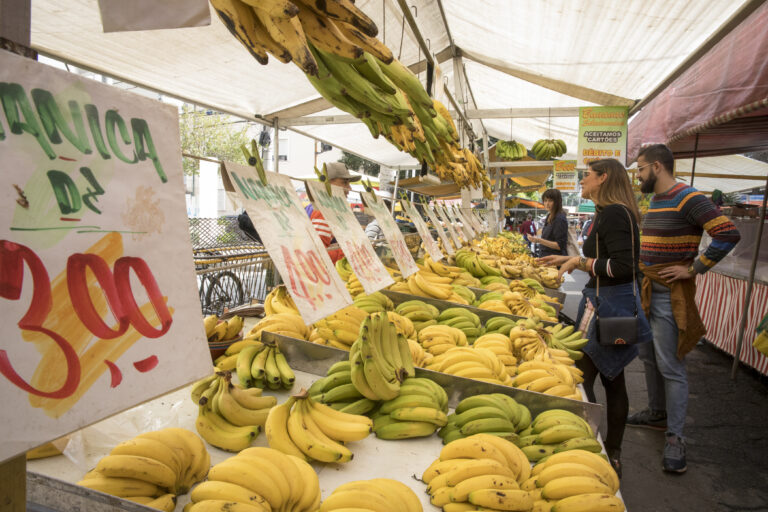Ventnor Botanic Garden on the Isle of Wight is not where you would expect to find olive trees. But, nestled beneath protective cliffs and softened by sea air, the garden is now home to a crop not usually found in Britain – and global heating could bring more of this Mediterranean staple to our shores.
“We’ve got an olive grove here containing about 20 to 30 olive trees, some of which are quite mature,” says Ventnor head gardener Wayne Williams, “and we do have those starting to produce fruits.”
British microclimates – like the one at Ventnor – offer small, sheltered pockets of land where heat gathers and sunlight lingers. Warmth is often trapped by natural features like slopes, stone walls, or nearby bodies of water. These features help to shield the area from cold winds, and makes frost less likely to settle.
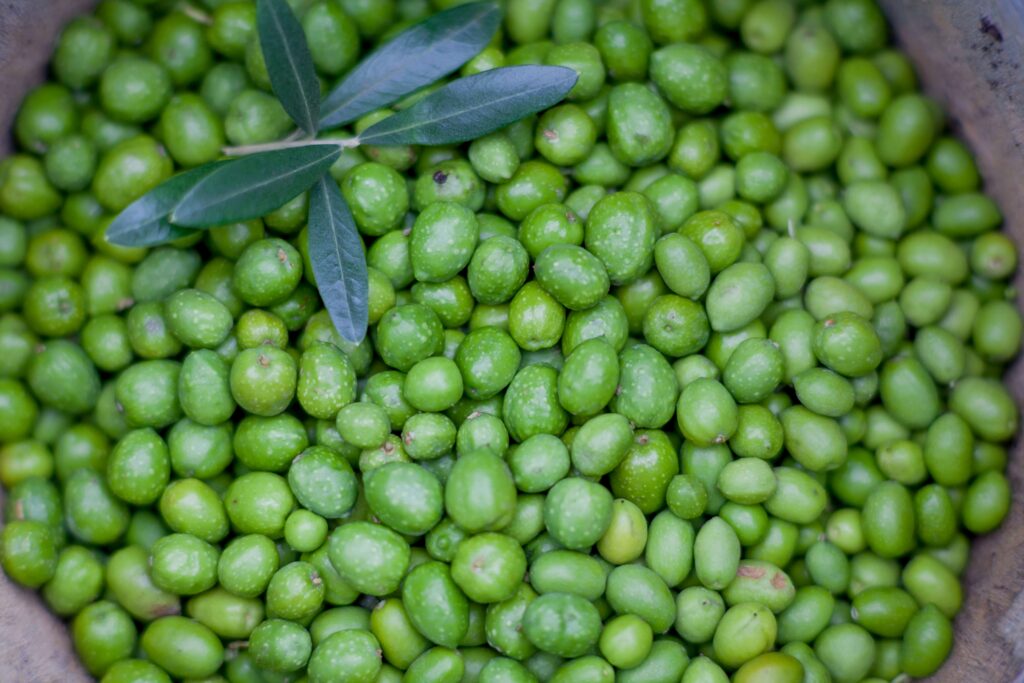
Chris Kidd, the olive garden’s curator, says the grove was planted between 2010 and 2011 and is now beginning to fruit more reliably. As conditions continue to warm, the gardeners are learning from their olive trees to consider other crops that could be grown in the UK’s future climate.
In a hotter future, olive growth will be less dependent on microclimates. A 2024 scientific review predicted that olive farming will move further north to higher ground, due to rising temperatures, less rain, and poorer soils making it harder to grow olives in traditional regions. The study notes that farmers will need to adapt how, and where, they grow.
Some British farmers are already planting olives far beyond the country’s most frost-free southern reaches.
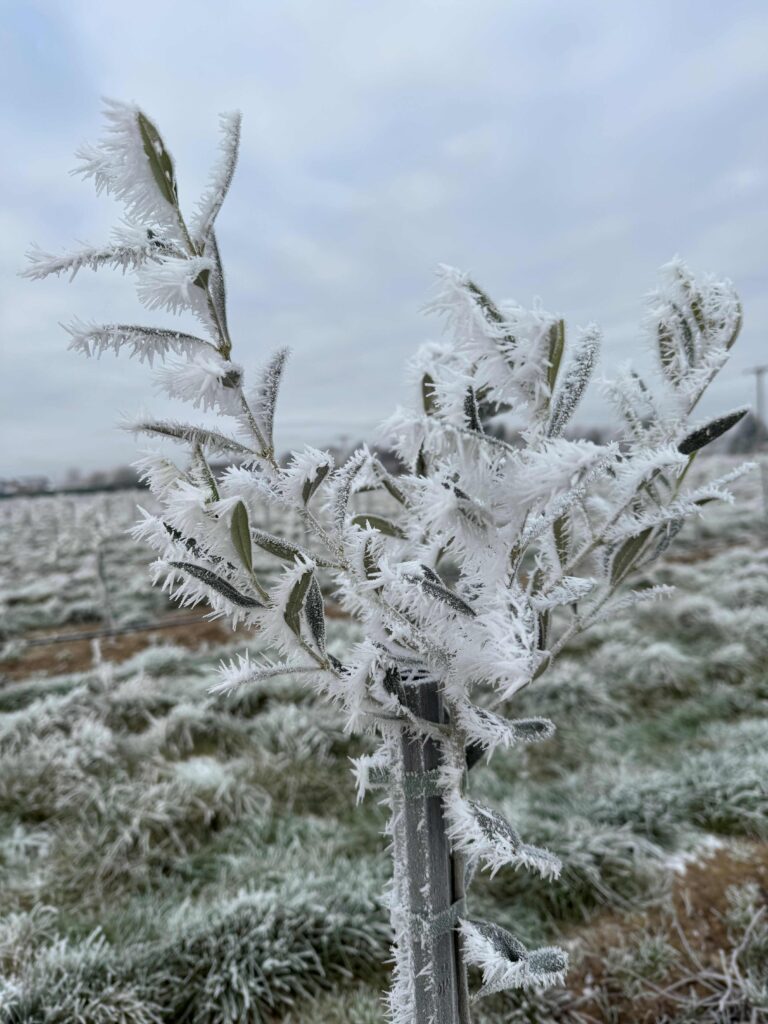

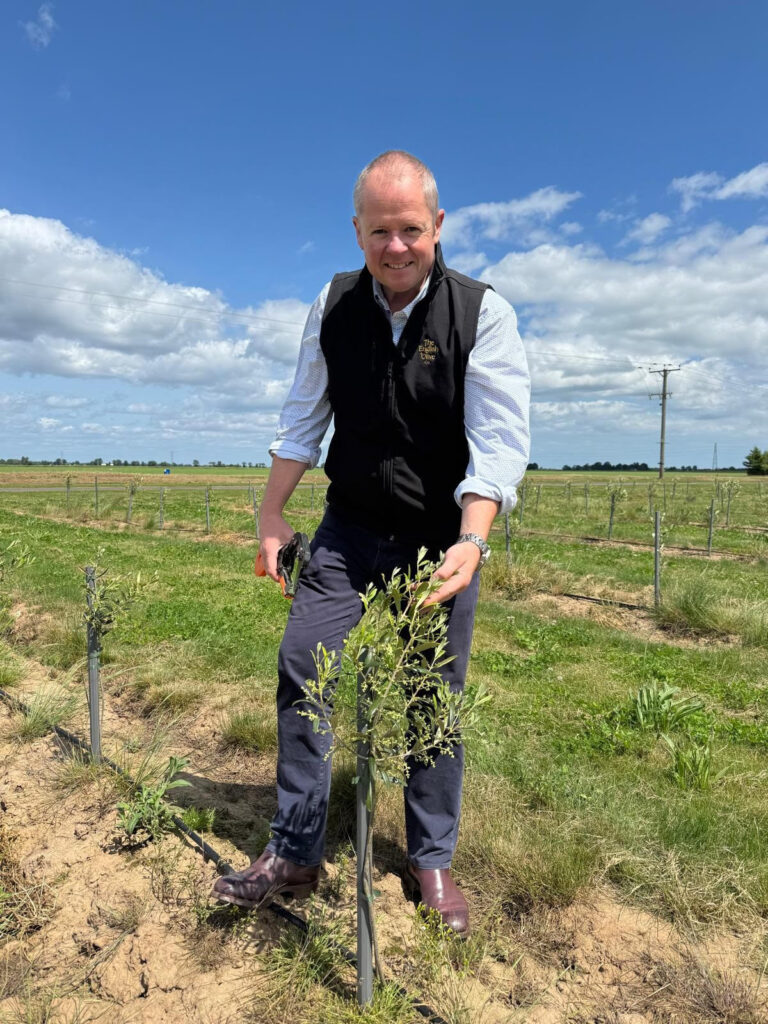
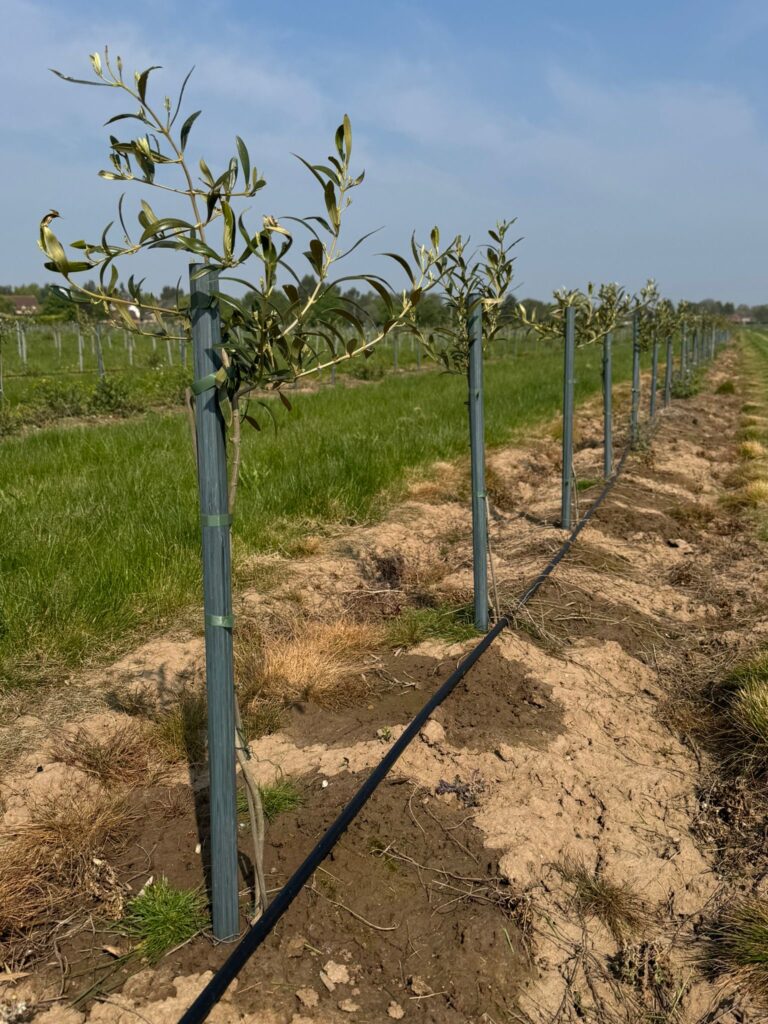
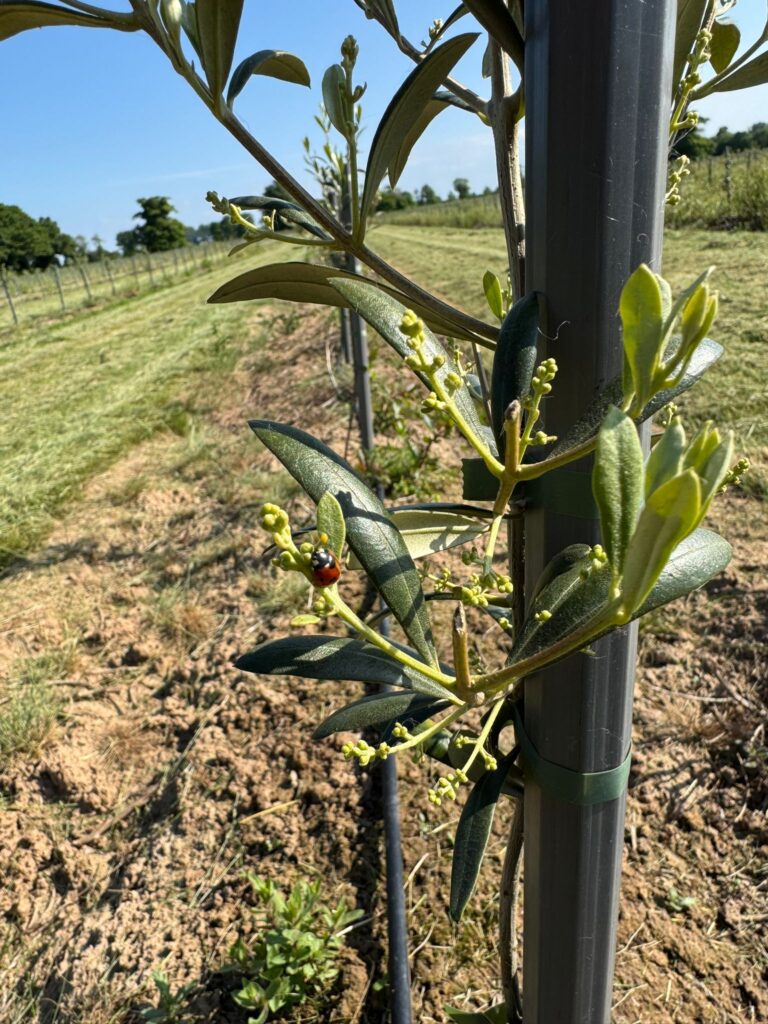
“This year, we’ve had one of the sunniest, driest springs on record, last year it was wet and dull, I’m learning every week,” says David Hoyles, a Lincolnshire-based farmer.
Hoyles spent almost a decade in Portugal and Spain watching olives flourish. Now back in England, he is applying his learnings to The English Olive Company.
“It is my passion and enjoyment of the Mediterranean lifestyle that is driving me. It’s opening other opportunities for farm diversification,” Hoyles says.
His Lincolnshire trees are just beginning to mature. “It will be the first flowering this spring, and then I’ll have a better idea after 2025 as to whether we can produce.”
British production may become increasingly relevant as traditional olive heartlands in the Mediterranean come under climate-induced pressure.
Dcoop, a major olive oil corporation in southern Spain’s Andalusia region, represents 75,000 families whose farms are facing extreme heat and drought across their olive groves.
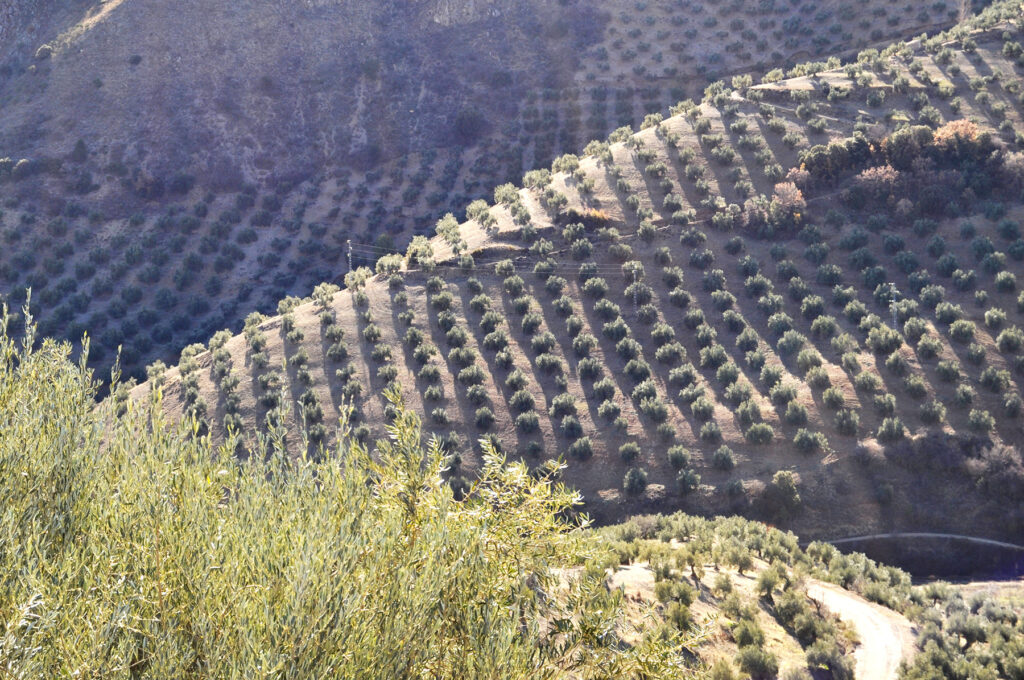
Spain produced 850,000 tonnes in last year’s crop, and only 665,000 tonnes the year before. Historically, average production has been in the region of 1.3 million tonnes.
“Droughts don’t necessarily affect the quality of products. The main problem is the fall of the crops,” says Esteban Carneros, the director of corporate relations at Dcoop.
The company has embraced smart farming as a means of adaptation. Since 2020, they have used technologies like soil sensors and data-driven irrigation systems to improve efficiency.
I think it’s beautiful to experiment and to find out the possibilities
Annelies Broekman
These systems help to ensure consistent growth through a network of pipes, channels, and sprinklers delivering controlled amounts of water when rainfall is scarce.
“Our farmers are learning by our technician’s advice. We are working on projects to use regenerated waste waters of the city of Málaga in olive yards,” Carneros explains.
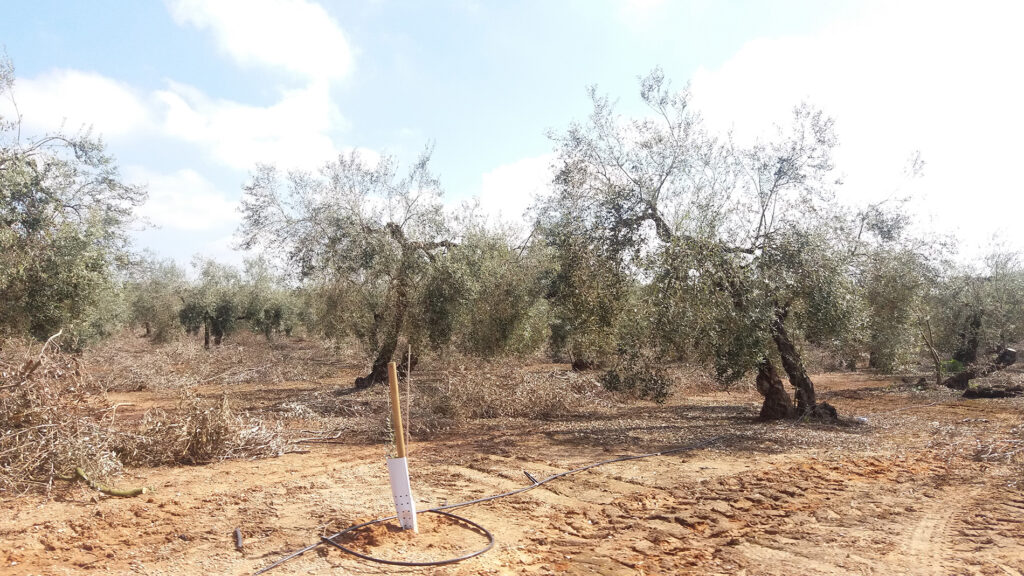
Despite these tools, some agricultural experts worry that farming practices themselves are part of the problem.
Louise Ferguson, a professor of plant sciences at the University of California’s Davis campus, notes that industrial planting methods worsen the olive trees’ vulnerability to heat and water stress.
While olive trees are naturally adapted to drought, “they weren’t planted at 400 or 800 trees to the hectare like they are now,” she explains, “some of those new orchards in Spain look like rows of boxwood hedges.”
For Annelies Broekman, an agricultural engineer with the Centre for Ecological Research and Forestry Applications, based in Catalonia, Spain, the focus remains on supporting traditional growing regions. Broekman welcomes experimentation but questions how far it can go. “I think it’s beautiful to experiment and to find out the possibilities. But for the UK to save olive production in Europe… I think it’s totally out of scope. It’s nonsense.”
In the UK, the arrival of olive crops signals both opportunity and loss. Adapting to climate change may mean letting go of traditional crops while embracing others.
At Ventnor, Williams reflects on which crops might vanish in a warming Britain. “We might not be able to grow apples, cherries, and plums in the future because they need colder winters,” he says, “but we will be able to grow citrus, olives, and dates as the climate changes.”
Whether the UK becomes a key player or a passing note in its future, olive farming is now a living experiment in climate science and farming.

